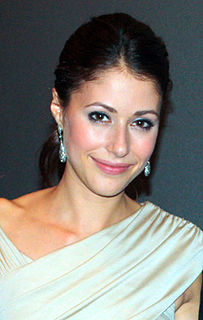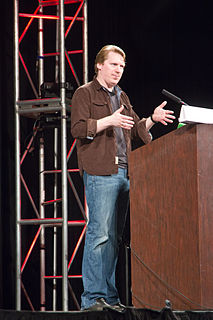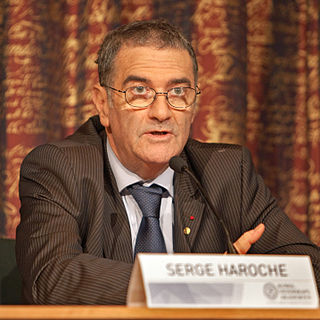A Quote by Bill McKibben
The technology we need most badly is the technology of community, the knowledge about how to cooperate to get things done.
Related Quotes
I am extraordinarily fascinated by the future of technology. We are in the early infancy of technology, and we have an opportunity to guide how technology develops and integrates into our lives. I talk a lot about the 'invisible interface,' or the idea that we can utilize technology without being absorbed into a screen.
Technology for me is discover, learn, evolve and implement. It combines 3Ss- speed, simplicity and service. Technology is fast, technology is simple and technology is a brilliant way to serve people. It is also a great teacher. The more we learn about technology and the more we learn through technology, the better it is.
I have mixed feelings about how fast things are changing as a result of technology. There's no denying that through technology there are amazing things being created that help people with diseases or help people's dreams come true. But there's also this obsession. Social media is the most dangerous of them all.
People always think of technology as something having silicon in it. But a pencil is technology. Any language is technology. Technology is a tool we use to accomplish a particular task and when one talks about appropriate technology in developing countries, appropriate may mean anything from fire to solar electricity.
When you as a designer design something that burdens a community with maintenance and old world technology, basically failed developed world technology, then you will crush that community way beyond bad design; you'll destroy the economics of that community, and often the community socially is broken.
When you as a designer design something that burdens a community with maintenance and old world technology, basically failed developed world technology then you will crush that community way beyond bad design; you'll destroy the economics of that community and often the community socially is broken.
One of the things that's exciting for me about this novel is that, to me, Brookland and The Testament of Yves Gundron were both, in certain regards, crypto-steampunk. They're both books that are interested in an alternate technological past that in fact didn't historically come to pass. If you were to ask me what my novels were about, I would say, well, these are novels about technology and how we relate to technology and what technology means.
Storytelling awakens us to that which is real. Honest. . . . it transcends the individual. . . . Those things that are most personal are most general, and are, in turn, most trusted. Stories bind. . . . They are basic to who we are. A story composite personality which grows out of its community. It maintains a stability within that community, providing common knowledge as to how things are, how things should be -- knowledge based on experience. These stories become the conscience of the group. They belong to everyone.
We became Homo sapiens not that long ago, from the scientific perspective, and we've retained a lot of our beast nature. We've done all these amazing things in terms of our knowledge base and technology, and now we're flying around and using the internet. But we're still very animalistic. So, I think about hierarchies. I think about evolution. I think about how we stack up, how we sit on top of each other. How we pray that we know what we're up to.
We ought to be keeping in mind that the technology is not just hardware and machinery, it is also software. So you can think of languages of the technology and writing of the technology and the social justice of the technology in what social justice does is reduce impacts on the Earth because the most impact is from the poorest and richest people.






































